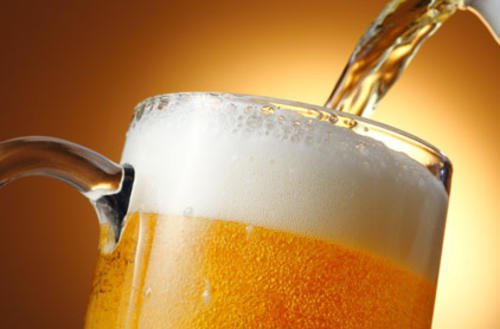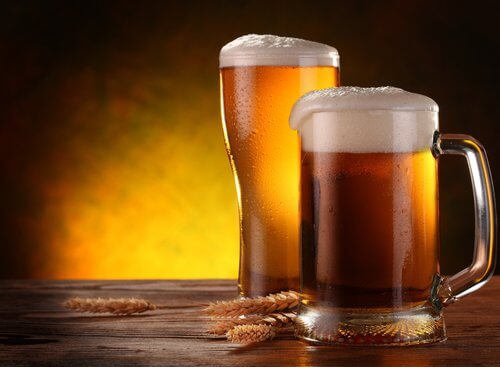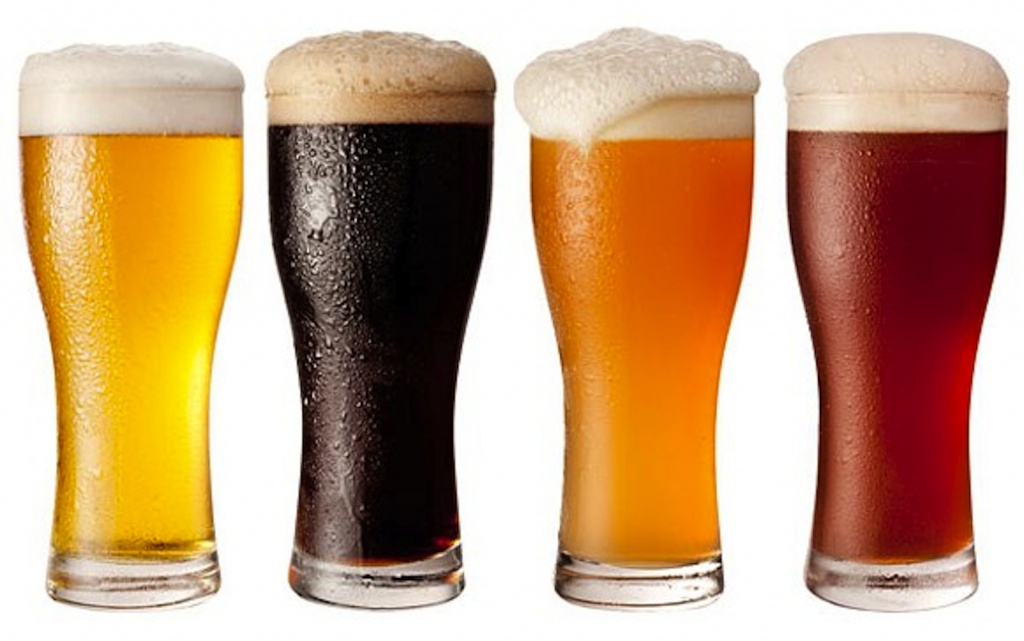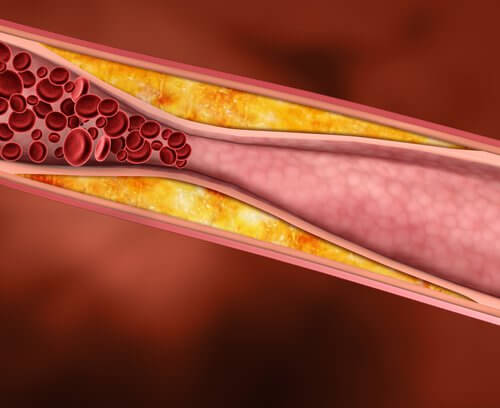The Best Way to Drink Beer


Written and verified by psychologist Valeria Sabater
Everyone loves super cold beer in the summer! Sometimes, we drink it and feel a little guilty. If I drink beer, will I gain weight? Is it bad for my diet? These are some of the most common questions people ask themselves when it comes to beer.
Today, we want to tell you all about beer. The first thing you should know is that beer doesn’t make you gain weight as long as you drink it in moderation.
1. If I’m on a weight loss diet, can I drink beer?

Beer is a drink we enjoy in many events with family and friends. We usually don’t drink it every day, instead preferring to drink it during more festive and relaxed times.
This thousand-year-old drink with attractive amber colors is made of barley and other grains. It has, as you know, a certain level of alcohol, which is why you should always drink beer in moderation. But what happens if you drink it on the weekends? We’ll explain:
- Beer generally has few calories and barely any saturated fats: 43 calories per 100 ml. So, if you drink a 250 ml glass, you’ll only take in 90 calories.
- What does that mean? It means that you can drink it in moderation. Keep in mind that a lot of soft cola drinks or carbonated drinks have many more calories.
- Nutritionists say that it’s best to drink beer with caution. If you’re passionate about this drink and like to drink it every day, try to drink a little less than a glass, about 200 ml. You already know that you take in 90 calories with every glass. This means you should burn them off with a little bit or exercise or a walk. Due to the calories and the alcohol it contains, it’s best not to drink more than this.
- We should also mention that the healthiest beer is the kind that’s made naturally and traditionally. In addition, the healthiest beer is dark beer. This type of beer is made from malt and hops and is rich in iron.
2. What benefits does beer have?

– Beer protects you from kidney stones
You shouldn’t forget one of the biggest benefits of beer: it’s very diuretic! Moderate consumption will protect you from suffering from kidney problems and stones.
Did you know? 6 Tips to Eliminate Kidney Stones
– Beer improves digestion
Do you know what kind of beer can help improve your digestion? Dark beer. Aside from the fiber, it has more fiber and therefore improves your intestinal processes, which prevents gastric and intestinal problems. Isn’t it great?
– Beer fights bad cholesterol

As you know, beer is rich in fiber. As a result, it helps you maintain LDL or bad cholesterol levels.
– Beer is rich in B Vitamins (B1, B2, B6, and B12)
People who drink beer regularly and moderately get about 30% more B complex vitamins than those who don’t drink. These vitamins allow you to have more energy, strengthen your bones and muscles, and also help you metabolize red blood cells better.
– Beer improves your bone health
It’s true: drinking beer helps you keep good silicon levels that also favor your bone health and mineral density.
– Beer allows you to sleep better

Do you know why? This is due to its great nicotinic and lactoflavin levels, which are great for sleeping.
– Beer prevents the formation of blood clots
Beer boosts proper blood circulation, which prevents clots from forming.
– Beer strengthens the immune system
This drink is rich in vitamins and antioxidants, which are great for strengthening your defenses. If you drink it moderately (about two to three glasses a week, for example), you’ll avoid a lot of colds and muscle or joint pains and also improve your cardiac health.
3. What’s more beneficial: beer or red wine?

Nutritionists say that both drinks are great, as long as you drink them in moderation. In other words, never more than one glass a day. Here are their differences so that you can decide for yourself:
- Wine: Drinking a glass of red wine a day will yield better cardiovascular benefits than beer. It also has many more antioxidants, like polyphenols. It also has higher potassium and magnesium levels.
- Beer: It has more B vitamins, nutrients, and soluble fiber than wine. You should also keep in mind that it has less alcohol.
So, the choice depends on your tastes. You can combine them throughout the week, according to your meals and personal events, but remember: always in moderation!
All cited sources were thoroughly reviewed by our team to ensure their quality, reliability, currency, and validity. The bibliography of this article was considered reliable and of academic or scientific accuracy.
- Díaz Curiel, M. and Torrijos Eslava, A. (2012). Acción de la cerveza sobre el hueso. Universidad Autónoma de Madrid y Hospital Universitario La Paz. https://www.redalyc.org/pdf/3609/360933655006.pdf
- Rehm J. The risk associated with alcohol use and alcoholism. Alcohol Research and Health. 2011. 34 (2): 135-143.
- Romeo J, González-Gross M, et al. Efectos of moderate beer consumption on blood lipid profile in healthy Spanish adults. Nutrition, metabolism and cardiovascular disease. Junio 2008. 18 (5): 365-72.
- Santiago Sánchez, I. (2008). Evaluación nutrimental del sedimento de cerveza elaborada con cebada maltera. Licenciatura. Universidad Autónoma del Estado de Hidalgo. http://dgsa.uaeh.edu.mx:8080/bibliotecadigital/bitstream/handle/231104/1695/Evaluaci%F3n%20nutrimental%20del%20sedimento%20de%20cerveza%20elaborada%20con%20cebada%20maltera.pdf?sequence=1
- Spaggiari G, Cignarelli C, et al. To beer or not to beer: A meta-analysis of the effects of beer consumption on cardiovascular health. Plos One. Junio 2020. 15 (6): e0233619.
- Gacimartín García, R. M. Aspectos sociales de la enfermedad cardiovascular. Chap www.fbbva.es/microsites/salud_cardio/mult/fbbva_libroCorazon_cap69.pdf
- Olalla, J., & de España, S. G. D. C. (2002). La cerveza, un alimento con propiedades funcionales. Madrid, España. http://usuaris.tinet.org/jcpulido/cerveza_salud.pdf
- Piano, J. A., Guijarro, M. C., Garrido, L. F., & Barea, J. A. (2003). Cerveza y nutrición. Spin Cero, (7), 49-57. http://www.geocities.ws/quimesca/articulos/cerveza.pdf
- Sánchez, C. L., Franco, L., Bravo, R., Rubio, C., Rodríguez, A. B., Barriga, C., & Cubero, J. (2010). Cerveza y salud, beneficios en el sueño. Revista Española de Nutrición Comunitaria, 16(3), 160-163. https://www.sciencedirect.com/science/article/pii/S113530741070034X
- Pérez Medina, T., Argila Fernández-Durán, N. D., Pereira Sánchez, A., & Serrano González, L. (2015). Beneficios del consumo moderado de cerveza en las diferentes etapas de la vida de la mujer. Nutricion Hospitalaria. https://www.redalyc.org/pdf/3092/309243316007.pdf
This text is provided for informational purposes only and does not replace consultation with a professional. If in doubt, consult your specialist.








